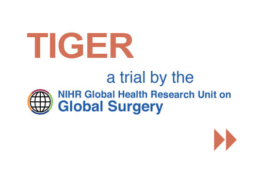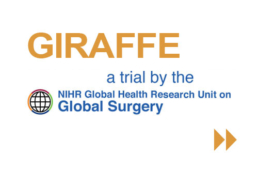Workforce Development
Improving surgical outcomes through collaborative research
The NIHR Global Health Research Unit on Global Surgery
Improving surgical outcomes through collaborative research
Workforce Development
Our work through the TIGER and GIRAFFE studies looks to address workforce development where, for example, patient wait time for key procedures (e.g. inguinal hernia repair) can be reduced. The design of sufficiently powered multi-national, multi-centred studies is enabling the GSU to gather evidence representative of the population, providing rapid guidance and recommendations. More information on this area of our research can be obtained via the links below.
Workforce Development Research

TIGER STUDY
TIGER (Task shifting Inguinal hernia Repair between surgeons and technicians): development of a randomised trial in low and middle income countries
Can technicians perform mesh inguinal hernia repair safely and cost-effectively in rural surgical settings in low and middle income countries?
This pilot trial aims to investigate delivery of a standardised, measurable training programme for technicians to perform a mesh inguinal hernia repair.

GIRAFFE STUDY
GIRAFFE (a patient-blinded, international, multicentre, cluster-sequence, randomised controlled study) uses an on-line education/training tool to improve in-theatre performance and perioperative care of patients undergoing emergency laparotomy and thereby seek to reduce postoperative hospital deaths.
Bringing together surgeons, researchers and policy makers to set the local research agenda according to patient need in LMIC and ensuring all patients have the opportunity to take part in our research.
